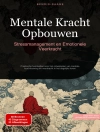This breakthrough volume brings together cultural neuroscience and intercultural relations in an expansive presentation. Its selected topics in reasoning, memory, and other key cognitive areas bridge the neuroscience behind culture-related phenomena with the complex social processes involved in seeing the world through the perspective of others. Coverage ranges beyond the familiar paradigms of acculturation and cultural differences to propose new ideas of potential benefit to the new generation of immigrants, negotiators, executives, and other travelers. Taken together, these chapters offer a deeper understanding of issues that can only become more important as the world becomes smaller and our global family larger.
Among the topics featured:
- Intergroup relationship and empathy for others’ pain: a social neuroscience approach.
- The neuroscience of bilingualism: cross-linguistic influences and cognitive effects.
- Cross-cultural reading the mind in the eyes and its consequences for international relations.
- Implications of behavioral and neuroscience research for cross-cultural training.
- Intercultural relations and the perceptual brain: a cognitive neuroscience perspective.
- How social dynamics shape our understanding of reality.
With its elegant perspectives and empirical depth, Neuroscience in Intercultural Contexts is a forward-looking reference for researchers in the cultural sciences (cross-cultural psychologists, anthropologists, etc.) and in social, affective, and cognitive neuroscience.
Innehållsförteckning
Introduction.- Intergroup Relationship and Empathy for Others’ Pain: A Social Neuroscience Approach.- Culture, Cognition, and Intercultural Relations.- The Neuroscience of Bilingualism: Cross-Linguistic Influences and Cognitive Effects.- Cross-cultural Reading the Mind in the Eyes and its Consequences for International Relations.- Brain-As-Predictor Approach: An Alternative Way to Explore Acculturation Processes.- Implications of Behavioral and Neuroscience Research for Cross-Cultural Training.- Intercultural Relations and the Perceptual Brain: A Cognitive Neuroscience Perspective.- Cultural Influences on Social and Self-Relevant Memory.- How Social Dynamics Shape Our Understanding of Reality.
Om författaren
Jason E. Warnick is Associate Professor of Psychology in the Department of Behavioral Sciences at Arkansas Tech University, and holds a doctorate in Experimental Psychology from The University of Mississippi. He is a fellow of the International Stress and Behavior Society and on the editorial board of seven peer-reviewed journals. In 2013, he was voted by his university’s student body to receive the Professor of the Year Award, and in 2014, he received the Arkansas Tech University Faculty Excellence Award for Service. Additionally, he has received awards for academic advising from the National Academic Advising Association and for online course design from the Blackboard Catalyst Award Program. His research in the fields of neuroscience and sport psychology has been published in variety of journals and edited books and has been featured in numerous media outlets.
Dan Landis (Ph.D, General-theoretical Psychology, 1963, Wayne State University) has held se4veral academic and consulting positions, including Affiliate Professor of Psychology at the University of Hawaii (both Manoa and Hilo campuses), Professor Emeritus of Psychology and Dean Emeritus, University of Mississippi. He is a past Chair of the Department of Psychology at Indiana-Purdue University, Indianapolis, Research Psychologist at Educational Testing Service, Senior Research Psychologist at the Franklin Institute Research laboratories, and Visiting Research Professors at the East-West Center and the Defense Equal Opportunity Management Institute. Dr. Landis is the author/co-author is over 100 books, articles, technical reports and presentations in such areas as: the measurement of equal opportunity climate in military and civilian organizations, racial and gender discrimination, perception, statistics, sexual behavior and attitudes, and cross-cultural psychology and training. He is the founding Editor-in-Chief of the International Journal of Intercultural Relations (1977-2011), the founding President of the International Academy for Intercultural Research(1997-2005), the coeditor/author of Ethnic Conflict (Sage, 1985), the coeditor/author of the three editions of the Handbook of Intercultural Training (1986, 1996, and 2004) and coeditor/author of Handbook of Ethnic Conflict ( Springer, 2012). A Mandarin translation of the 2004 Handbook was published by Peking University Press in 2010. Dr. Landis is a Fellow of the American Psychological Association, a Fellow of the Society for the Psychological Study of Social Issues, and a Fellow of the Association for Psychological Science. He is listed in Who’s Who in America and other biographical compendiums. In 1987, Dr. Landis, together with Dr. Mickey Dansby and Dr. Gloria Fisher developed the Military Equal Opportunity Climate Survey (MEOCS) which, in various versions, is in wide use throughout the U.S. Department of Defense. During 1994-96, Dr. Landis was appointed the first Shirley J. Bach Visiting Professor at the Defense Equal Opportunity Management Institute (DEOMI). During his tenure at DEOMI, he conducted further studies of equal opportunity climate in the U.S. Armed Forces as well as investigated racial disparities in the military justice system. In 2007 he was given a Lifetime Achievement Award by the International Academy for Intercultural Research and, in 2012, he was honored by the American Psychological Association with its award for Distinguished Contribution to the Internationalization of Psychology. Since 2005, he has been the Executive Director and Treasurer of the International Academy for Intercultural Research. In 2013, he was appointed the Editor for Behavioral Sciences of Springer Plus, an open access, highly peer reviewed, and on-line journal published by Springer Open. A fourth edition of the Handbook of Intercultural Training is now in progress with a publication date of 2015.












